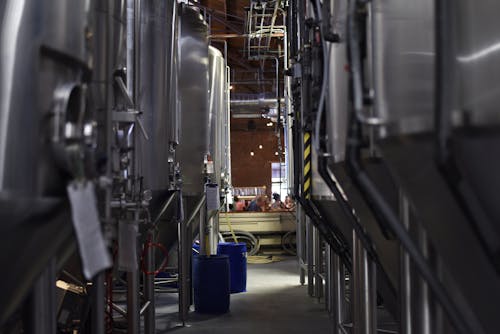
Wastewater Treatment For Breweries| Arrowhead Environmental
Wastewater Treatment for Breweries: Ensuring Quality and Sustainability

Water is a fundamental element in the brewing process, comprising approximately 90% of beer’s composition. Its quality greatly influences the taste, aroma, and overall character of the final product. Breweries must ensure their water meets stringent quality standards to create exceptional beers that delight consumers.
The quality of water used in brewing affects various aspects of the beer, including flavor, clarity, and stability. It serves as a medium for extracting sugars and flavors from malted grains, contributing to the beer’s distinct taste. Water chemistry also impacts the pH level, affecting enzyme activity and yeast performance during fermentation.
Water sources can contain impurities that pose challenges for breweries. Some common contaminants include:
- Sediments: Particles such as sand, silt, and clay can affect the clarity of beer.
- Chlorine and Chloramines: These disinfectants, commonly found in tap water, can create off-flavors in the final product.
- Heavy Metals: Trace amounts of metals like iron, copper, and zinc can negatively impact beer quality.
- Organic Compounds: Pesticides, herbicides, and other organic compounds may alter the taste and aroma of beer.
To address water quality issues, breweries employ various treatment methods:
- Filtration systems are effective in removing sediments and larger particles from water. They typically consist of multiple filters with different pore sizes, ensuring thorough purification.
- Reverse osmosis (RO) is a popular technique for purifying water. It employs a semi-permeable membrane to remove dissolved solids, contaminants, and minerals, providing breweries with clean and mineral-adjusted water.
- UV sterilization employs ultraviolet light to neutralize microorganisms and prevent their growth in water. It is an eco-friendly method that eliminates the need for chemicals and is commonly used as a supplementary treatment alongside other processes.
- Chlorination involves adding chlorine compounds to water to disinfect and eliminate bacteria, viruses, and other pathogens. It is an effective method for ensuring water safety and quality.
- Carbon filtration utilizes activated carbon to remove chlorine, chloramines, and organic compounds, enhancing the taste and odor of the water. It is often employed as a final polishing step in the treatment process.
Arrowhead Environmental: Leading the Way in Water Treatment

Arrowhead Environmental is at the forefront of providing advanced water treatment solutions for breweries. Their expertise and innovative technologies help breweries meet their specific water quality requirements while promoting sustainability.
Cutting-Edge Technologies
Arrowhead Environmental employs state-of-the-art technologies like advanced filtration systems, membrane processes, and ozone treatment to deliver high-quality water tailored to each brewery’s needs.
Customized Solutions for Breweries
Understanding the unique challenges faced by breweries, Arrowhead Environmental offers customized water treatment solutions. They assess the water source, analyze its composition, and design systems that ensure optimal water quality for brewing operations.
Sustainable Approaches
Arrowhead Environmental recognizes the importance of sustainability in the brewing industry. They integrate energy-efficient processes, promote water conservation, and implement recycling strategies to minimize the environmental impact of water treatment.
Dedicated To Brewing The Best
Water treatment plays a vital role in ensuring the quality and sustainability of breweries. By employing effective methods such as filtration, reverse osmosis, UV sterilization, chlorination, and carbon filtration, breweries can produce exceptional beers with consistent quality. Arrowhead Environmental’s cutting-edge technologies and customized solutions further empower breweries to achieve their water quality goals while prioritizing sustainability.


